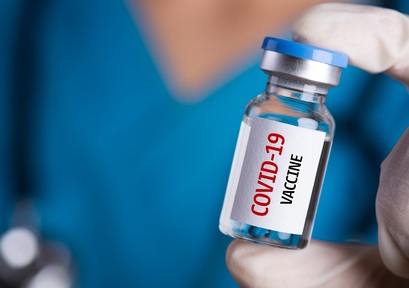Care home residents in Scotland to receive coronavirus vaccine from today
Residents of some care homes in Scotland will begin to receive the Pfizer vaccine against coronavirus (COVID-19) from today but the Scottish government warned this could be a "slow process".

This comes after more than 5,000 key NHS workers and vaccinators received the Pfizer vaccine in the first few days of the vaccination programme.
At the weekend, the Scottish government said a solution had been agreed which allowed the Pfizer vaccine to be transported from storage hubs to care homes.
The move has been made possible as the Pfizer vaccine can be ‘packed down’ into smaller pack sizes. The vaccine is received in packs of 195 five dose vials.
These vials will need to be diluted before use but can be transported in an unfrozen state for up to 12 hours and can be stored undiluted for up to five days.
Cabinet Secretary for Health, Jeane Freeman said: “This is another important moment in our journey through the coronavirus pandemic and I am delighted that we have received the authorisation we need to enable us to vaccinate the most vulnerable people in our care homes.
“Officials in the government and our health boards, along with Pfizer, and the MHRA, have worked really hard to allow this to happen and it is another step on the road to our collective recovery and a return to a more normal way of life.
“We are providing the vaccine to people in care homes according to the order of priority set out by the Joint Committee on Vaccination and Immunisation (JCVI) and we will work through that order of priority as quickly as vaccine supply allows.”
Even though care home residents are to be prioritised for receipt of the vaccine from current supplies, the Scottish government has warned that the pace of the vaccine delivery programme remains dependent on the supply of doses.
Donald Macaskill, Scottish Care chief executive told the BBC: "This is a tremendously important and positive day for residents, for their family members and also for staff.
"We've had nine months of sheer hell and distress across Scotland's care home sector. This virus has hit the most vulnerable the hardest, and those sadly are individuals in our care homes.
"So this really is the beginning of turning a corner.
"Practically, we need to work with the fact we have a supply which is the first phase supply and we need to prioritise those most at risk. This will be a slow process."
The government is reminding the public to stick to the published restrictions and follow public advice to keep suppressing the virus to as low a level as possible.
Ms Freeman added: “We are hopeful that subject to further stringent approvals, other vaccines may meet MHRA approval for supply – for example, AstraZeneca and Moderna – enabling more vaccinations to take place at a faster rate.”
Latest News
 29-Jul-24
Dementia Bus gives carehome.co.uk staff insight into life with dementia
29-Jul-24
Dementia Bus gives carehome.co.uk staff insight into life with dementia
 01-Mar-24
Find out the top care homes in 2024
01-Mar-24
Find out the top care homes in 2024
 21-Mar-23
UK's top care homes in 2023 revealed
21-Mar-23
UK's top care homes in 2023 revealed
 03-Jan-23
carehome.co.uk launches free care helpline
03-Jan-23
carehome.co.uk launches free care helpline
 13-Dec-22
5 mins with Emily Whitehurst, chief operating officer for Constantia Healthcare
13-Dec-22
5 mins with Emily Whitehurst, chief operating officer for Constantia Healthcare